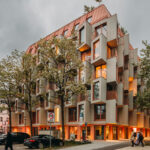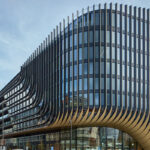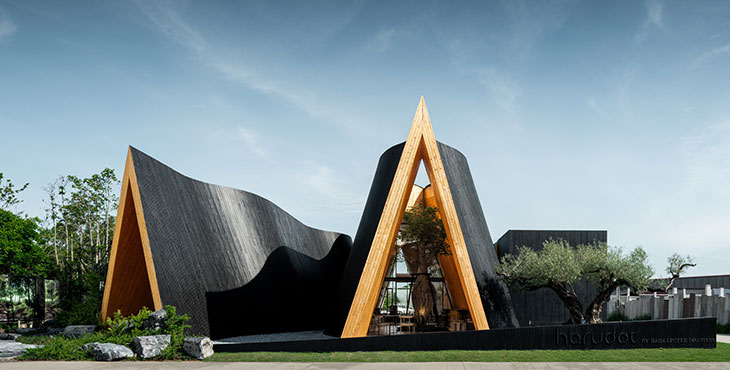
Harudot, a stand-alone café in Chonburi, Thailand, has quickly become a must-visit destination for both locals and tourists. This unique café is the product of a collaboration between the owner of the Nana Coffee Roasters brand and a landlord with a particular passion for plants with distinctive forms. The café’s design not only reflects this partnership but also captures the essence of a new beginning, a concept deeply rooted in its name—“Haru,” meaning “Spring” in Japanese, and “Dot,” symbolizing a “starting point.”

The architectural concept for Harudot focuses on the idea of growth, with the café’s design integrating nature at its core. A standout feature is the inclusion of a bottle tree (baobab) at the heart of the café, symbolizing life and new beginnings. The building’s gable form is designed to appear as though it has grown around the tree, allowing it to reach toward the sky. This design choice creates a visual narrative that suggests the tree was planted long before the café was built, with the architecture evolving around it over time.
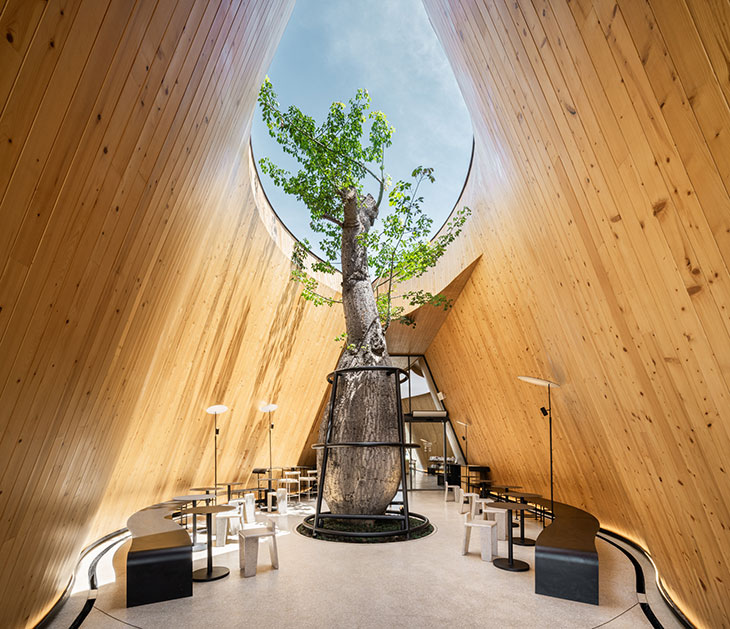
The café’s aesthetic draws heavily from Japanese culture, embodying the principles of humble simplicity with meticulous attention to detail. This is evident in the exterior, where three simple black gable forms contrast with the warm pine wood of the interior. As visitors step inside, they are led through a space that gradually becomes more dynamic, with curving walls that guide them deeper into the café. This transition from the straightforward exterior to the fluid interior creates a memorable experience for guests, aligning with the café’s goal of offering an interesting and engaging destination.
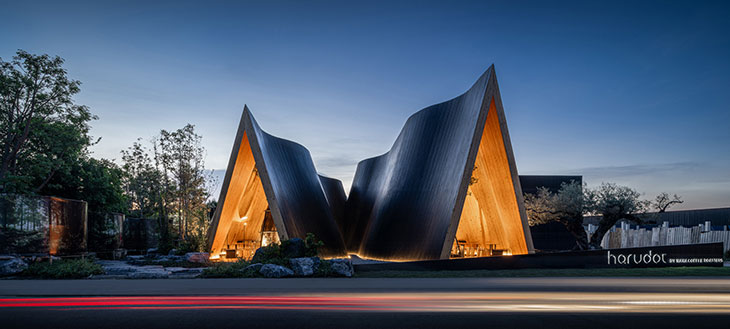
The design also emphasizes a human-scale experience by dividing the building into smaller sections, each with a distinct function. These sections include a bar, a coffee drinking zone, a lounge, a meeting room, and restrooms. The gable roofs are strategically pulled apart at certain points to allow the tree to grow through, creating semi-outdoor spaces that blur the line between the interior and exterior. These voids invite natural elements like sunlight and rain into the café, maintaining a strong connection to nature even within the enclosed environment. The interior spaces continue this theme with Barrisol stretch ceilings that mimic the voids, softly diffusing light and connecting the indoor spaces with the natural world outside.
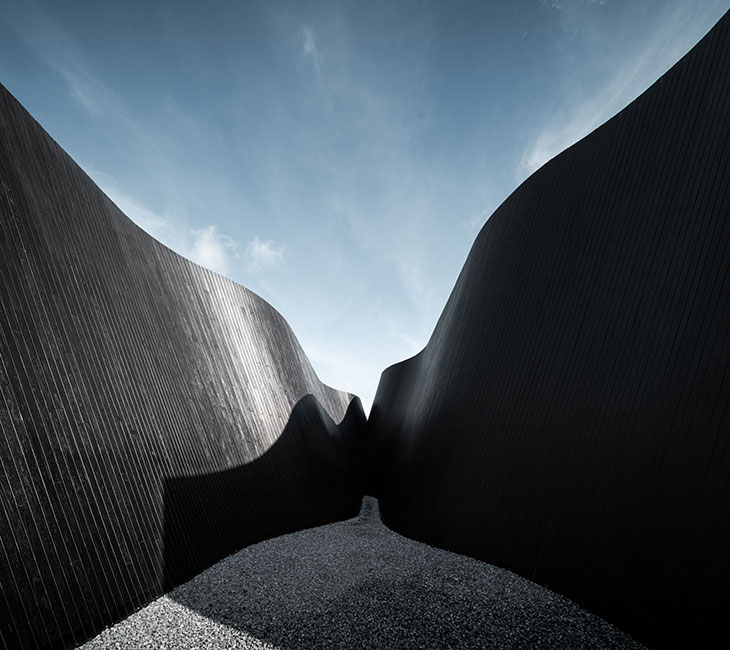

The seating inside Harudot is designed to flow seamlessly, like a continuous ribbon that wraps around the space, providing a sense of continuity and cohesion. The café’s outdoor seating, made from resin mixed with coffee grounds, rice, and leaves, ties the seating design back to the coffee theme, further enhancing the café’s identity. The varied heights of the counters and seating areas cater to different functions, ensuring that every aspect of the café is both functional and aesthetically pleasing.
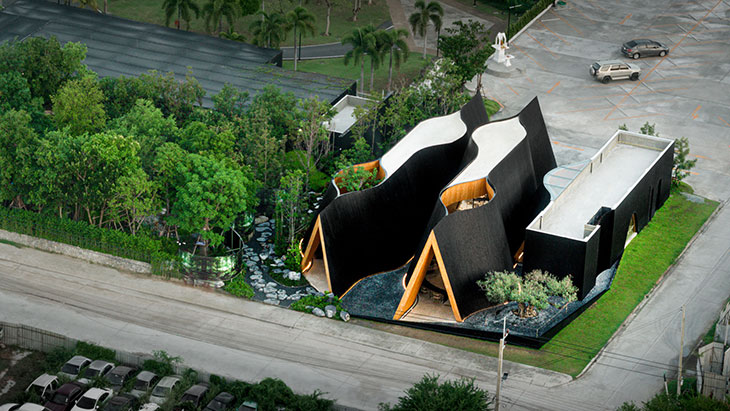
Attention to detail is evident in every aspect of Harudot’s design, from the custom fonts and signage inspired by circular dots and the spring season to the playful terrazzo floor. The floor features circular separations with embedded quotes and words that guide customers through the space, along with flower petal patterns that seem to have fallen from the trees outside. These elements create an engaging environment where customers can discover new details with each visit, making Harudot not just a café but a hidden gem that invites exploration and discovery.


